ALL QUIET IN THE WEST (A MEDITATION)
Gaither Stewart
(Rome)
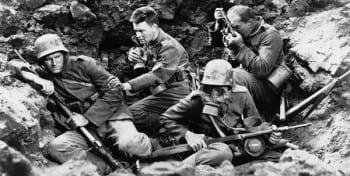
Still from All Quiet on The Western Front (1930), the classic film on the lost WWI generation based on E.M. Remarque’s novel and directed by Lewis Milestone left an enduring mark, but the ruling circles once again managed to launch another fratricidal war by 1939. (click to expand)
[dropcap]T[/dropcap]his morning as I begin piecing together ideas prompted by a reading of one of the best anti-war books ever written—Erich Maria Remarque’s Im Westen Nichts Neues (All Quiet On the Western Front)—contemporary leaders of Europe of East and West are gathered in Milan three hundred miles north of Rome to discuss concepts of war and peace just as men have done since the ancient Greeks did while at the same time their armies were plundering their world. A few days later, a five-hour conference, One Hunded Years of War, took place at Bishop’s Gate in London
This year of 2014—one hundred years after the begin of WWI, “the war to end all wars”, began in Europe—is the proper time to refer back to the novel by Erich Maria Remarque, All Quiet On the Western Front, an excellent framework to discuss the terrible dichotomy in man: his irresistible urge for war and death as opposed to his need for peace and life. I had read Remarque’s book as a young man in English; now I have just read it in the writer’s German language … of the country where I spent many years of my early adulthood and which language creates a very different atmosphere and mood than the version I remembered and transmits to me a clearer understanding of the writer’s intentions.
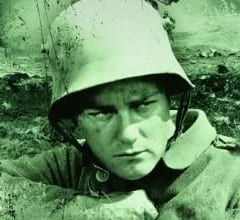 I was struck by the author’s constant use—every few pages it seems—of the German word Dasein, often translated into English as “existence”. Dasein, or “being there”, or presence, is fundamental in existential philosophy to mean the whole experience of being of the human species: the awareness of our “being there” as well as the dilemma of living with our fellow human beings while aware that we are ultimately alone with ourselves.
I was struck by the author’s constant use—every few pages it seems—of the German word Dasein, often translated into English as “existence”. Dasein, or “being there”, or presence, is fundamental in existential philosophy to mean the whole experience of being of the human species: the awareness of our “being there” as well as the dilemma of living with our fellow human beings while aware that we are ultimately alone with ourselves.
Thus Dasein in that full sense of the word becomes an important theme of Remarque’s book: while it is emblematic of the opposing forces of war on the one hand and peace on the other, it reflects in the deepest sense individual man’s relationship with war, which is fear and death. In Remarque’s book only the soldier’s comradery, his love for his closest comrades without whose presence he returns to a state of solitude and alienation from life, keeps him alive. Yet when his comrades fall, his Dasein somehow continues.
The world goes around and everything comes back again. Human beings say and do the same things again and again. Man’s behavior and the ways of the world throughout history are truly inexplicable. Since the life of mankind is a chain of continuity, man’s unchanging behavior points us back to the ancient Greeks whose civilization was a major link in that chain. And what do we find there? We find the same warmongers and pacifists of today, identical war parties and peace parties, arms industries, the generals who predictably “just love war”, and, as one might expect, the same identical massacres of non-combatants as an everyday event in America’s wars, now conveniently called “collateral damage”, a military euphemism dating from the Vietnam War today so common that we nearly skip over those terrible words. Hopefully someday collateral damage will be called by its real name: “Crime against humanity”.
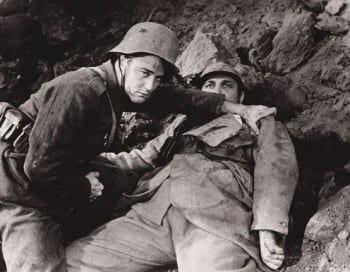
Paul in the bomb crater with his victim, enemy and soon to realize, brother. (Still from All Quiet on the Western Front, 1930)/ click to expand
Greek classics confirm that human beings are not as innovative as we like to think. A recent look at Greek ideas on power subsequently led me step by step to considerations of how power in the time of the Greeks of 2500 years ago led inevitably to war, just as it has for the last one hundred years. Ambition, power, wealth, influence, the urge for domination.
Euripides’ tragedy of 415 B.C. is considered by some critics as the greatest anti-war play ever written. That historical conclusion is truly astounding, considering the number of wars fought among the world’s major civilizations since those times. But, wait! Before going further I should situate this literary work in its proper framework: First of all—as do America’s wars today—it took place in “peacetime”, in the aftermath of the fall of Troy to the victorious Athenians. Centralizing Athens had just brutally sacked the island state of Melos to force it into the Greek Federation, much in the same fashion that centralizing USA undertakes its wars for “regime change” throughout the world. The Greek military action had shaken the people of Athens itself, as each new slaughter of civilians in Iraq or Afghanistan should stun us today. As was customary in those times most male citizens of Melos were massacred and women and children enslaved. At the same time the “peacetime” Greeks were preparing an unprovoked war against Sicily (read Syria and Iran for today), which in the long run however did not work out well, similar to America’s failure in Ukraine of 2014.

Actual German line. Appears to be freshly built and not yet exposed to actual combat, rain and mud. (click to expand)
Euripides’ tragedy reflected that then recent history. The play is set in Troy in the period between the fall of the city-state to Athens and the departure of the Greek fleet for home. The same thing had happened there as in Melos: the innocent civilians had suffered most. The Trojan men were slaughtered while the Trojan women were distributed among the victors. But as happens time and time again throughout history, the villains, the hated Athenian Odysseus, pretty, full-breasted Helen over whom the war was fought, and her former husband Menelaus, all survived. The focus in Euripides’ masterpiece is about the defeated Trojans. For a change the warlike Greeks are the bad guys.
Like Euripedes tragedy, Remarque’s novel is about the defeated, the Germans. Men of both sides fought the wars and suffered, but, as usual, the defeated suffered the most.
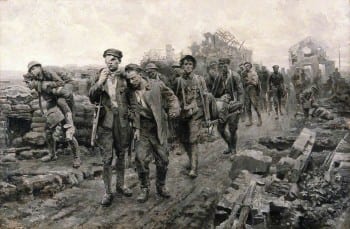
The Great War stimulated many artists, here a British rendition of the cost of war. (click to expand)
A primary element to compare and discuss is the hopelessness, uselessness and absurdity of war. In Euripides you see the hopeless despair of the women survivors in Troy: their fates as slaves and concubines of the victors. Remarque instead shows the hopelessness, the lostness, the solitude, the annihilation not only of individuals but of an entire generation of young men of eighteen to twenty years-old sacrificed for a war his characters do not understand. His was the first Lost Generation: the German soldiers of WWI. At one point, after the death and gore of his comrades, the terror and the tac tac tac of machine guns and the crash of grenades and shells, after the inferno of the trench warfare front, Remarque’s hero, Paul Bäumer thinks: “I see that peoples are driven one against the other and silently, unknowingly, foolishly, obediently, innocently kill (each other). I see that the smartest brains in the world invent weapons and words in order to make it more refined and long-lasting. And I and all people of my age, here and over there, in the whole world, and my generation experience the same.”
He ruminates: “For many years our activity was killing—it was our first profession in our Dasein. Our knowledge of life is reduced to death. What can happen afterwards? What will become of us?”
Likewise, today, one hundred years after Paul, our generation should recall the despondent Mothers of Mayo in Argentina during another kind of war, the Iraqi mothers and wives and daughters and their maimed and morally destroyed men folk. We can also recall the wives and mothers of American soldiers killed and maimed in Korea, Vietnam, Iraq and Afghanistan, as well as the broken lives of hundreds of thousands of America’s young men, many of whom are now abandoned on the desolate streets of the cities of America.
The lack of compassion on the part of the Greek warriors recalls the same degeneration of humanity as seen in Abu Ghraib and Guantánamo and the unseen peoples, unknown and unnamed, under the bombs from stratospheric airplanes and unseen and unmanned drones. The inhumanity of war. So great was the savagery of the Greek victors too that even the gods Athena and Poseidon turned on them and destroyed many of their ships on the return voyage home.
Remarque describes a scene during the last days of the war when Germany knows it is defeated and soldiers are awaiting a peace declaration, an unopposed enemy airplane playfully chases one lone German soldier fleeing across open fields before, for entertainment, destroying him with a burst of machine gun fire.
Yet in Remarque, despite such individual displays of spite and savagery, the signs of comradery extend across the front lines from soldier to soldier who though they kill each other to survive even in hand-to-hand combat, they do not hate the enemy and even celebrate life together. “How senseless all that has ever been written, done or thought, when such is possible. It must be all lie and unimportant if the culture of thousands of years cannot prevent this stream of blood, that this jail of torture of hundreds of thousands can exist.”
The war rages on. Paul and his comrades cease to count the weeks they have spent fighting. Paul compares war to a deadly disease like the flu, tuberculosis, or cancer. The men’s thoughts are molded by “the changes of the days”: when they are fighting, their thoughts go dead; when they are resting, their thoughts are good. Their prewar lives are “no longer valid” since the years before they joined the army have ceased to mean anything. Before, they were “coins of different provinces”; now, they are “melted down,” and they all “bear the same stamp.” They identify themselves as soldiers first, only second as individual men. They share an intimate, close bond with one another, like that of convicts sentenced to death. Survival requires their complete, unquestioning loyalty to one another.
Paul talks to a dead soldier he has killed in hand-to-hand combat, explaining that he did not want to kill him. In the man’s pocketbook Paul finds a picture of a woman and a little girl. He reads what he can of the letters tucked inside. Every word plunges Paul deeper into guilt and pain. The dead man’s name is Gérard Duval, and he was a printer by trade. Paul copies his address and resolves to send money to his family anonymously. As dark falls again, Paul’s survival instinct reawakens. He knows that he will not fulfill his promise to the French soldier. He crawls back to his trench. Hours later, he confesses the experience of killing the printer to his comrades. They point out that he took no pleasure from his killing, that he had no choice; it was kill or be killed.
The tragedy written by the Athenian playwright is so pro-Trojan that it would cause not only bewilderment in a tongue-tied American mainline critic of America’ role in Afghanistan today, but also the destruction of his career. Only a pitiful small part of America feels sympathy for the defeated or even speaks of an undigested Vietnam. We can well wonder how long it will be before mainline culture discuses US guilt in Iraq or in Libya or today in Ukraine. How hard to pronounce ourselves pro-Afghan in this war.
One wonders why we are incapable of the same self-criticism Euripides was 2500 years ago. An uncomfortable truth for culture historians is that the world of the Greeks was upside-down. It was ruled by tragedy and ruthlessness and disregard for human lives; war and death and destruction reigned. Yet anyone who has read the classics knows that its men of culture, unlike their counterparts in the West today, resisted. The great Greek tragedies—of Sophocles, Euripides, and Aeschylus—were committed expressions of cultural freedom directed against power in all its forms. Though the Greeks were a male-dominated, martial society, the writers were the ethical conscience of mankind. Euripides’ message was that war scars the defeated and the victors alike. And not even post-bellum cleansing can remove the stain of blood and guilt.
Similarly, Remarque’s hero, Paul Bäumer, observes the Russian prisoners in a camp adjacent to a German recovery area and feels sympathy for them in near starvation. “The spirit of brotherhood among the prisoners touches Paul deeply. They live in such miserable circumstances that there is no longer any reason for them to fight among themselves. Paul cannot relate to them as individual men because he knows nothing of their lives; he only sees the animal suffering in them. People he has never met, people in positions of influence and power, said the word that made these men his enemy. Because of other men, he and they are required to shoot, maim, imprison, and kill one another. Paul pushes these thoughts away because they threaten his ability to maintain his composure. He breaks all of his cigarettes in half and gives them to the prisoners. One of the prisoners learns that Paul plays the piano. The prisoner plays his violin next to the fence. The music sounds thin and lonely in the night air, and only makes Paul feel sadder”
Euripides’ message was that war scars the defeated and the victors alike. And not even post-bellum cleansing can remove the stain of blood and guilt.
So who profits from the inhumanity of war? War profiteers are nothing new and should be recognizable for what they are. In Aeschylus’ Agamemnon, the Chorus, standing at urns filled with the ashes of young men warriors (recalling the body bags and caskets bringing the dead back from America’s wars) recite: “For war’s a banker, flesh his gold.” Just as today, the makers of swords and spears and helmets and shields of the time censored all talk of peace. Generals like two-gun General Patton singing of the “joy of war” and “crazed for sweet human blood” sorrowed at the very mention of the word “peace” … at which ordinary people always rejoice.
Statistics of war dead are always misleading. In Greece, chiefly soldiers died. The women of Troy and Melos were enslaved. In Remarque’s WWI only the poorer civilians suffered privations of their creature comforts.
In our times, the great majority of dead are instead civilian, the collateral damage: in Vietnam, ninety per cent of the total dead were Vietnamese civilians as opposed to 59,000 American dead and its hundreds of thousands mutilated. In Iraq, probably ninety-nine per cent of the total dead are civilians.
At first also the Greek wars seemed glamorous and righteous and heroic … young men off in adventure to see the world. But those wars too ended in slaughter. Men and gods now know that America’s modern wars without winners, only losers, always hurt the innocent and pillage man.
Conquerors never conquer completely and the defeated are never defeated completely. Vietnam and Iraq and Afghanistan and Libya and Cuba and Nicaragua, to name a few, are the proof. But in the attempt, the innocent pay.
 Most people know that the reasons for war are as absurd as is war itself. A gossipy (now metaphorical) aside about Helen of Troy recounts that the bloody ten-year Trojan War was over the bigamist and two-faced Helen, first Athenian as the wife of Menelaus, then Trojan as wife of Paris, then again Athenian, back in the arms of forgiving Menelaus. Helen, it was said, had great hair, bland manners, a cute little wart between her eyebrows, little mouth and perfect tits. Menelaus erupted into Troy to kill her for her marital betrayal but according to myth he only had to take one look at her bared breasts before he dropped his sword. In her life Helen apparently did little more than display her body … and betray. We do not know what she thought. Apparently, like war, she had no virtues. Most certainly she brought disaster to men and has been defined as “an irresistible sorrow”. Perhaps chastised by conscience but still a slave of her passions, Helen once referred to herself as “bitch that I am”—which describes clearly the reasons for war. She was the confirmation of Horace’s cutting words that even before Helen “the cunt (again metaphorically) was the cause of wars”.
Most people know that the reasons for war are as absurd as is war itself. A gossipy (now metaphorical) aside about Helen of Troy recounts that the bloody ten-year Trojan War was over the bigamist and two-faced Helen, first Athenian as the wife of Menelaus, then Trojan as wife of Paris, then again Athenian, back in the arms of forgiving Menelaus. Helen, it was said, had great hair, bland manners, a cute little wart between her eyebrows, little mouth and perfect tits. Menelaus erupted into Troy to kill her for her marital betrayal but according to myth he only had to take one look at her bared breasts before he dropped his sword. In her life Helen apparently did little more than display her body … and betray. We do not know what she thought. Apparently, like war, she had no virtues. Most certainly she brought disaster to men and has been defined as “an irresistible sorrow”. Perhaps chastised by conscience but still a slave of her passions, Helen once referred to herself as “bitch that I am”—which describes clearly the reasons for war. She was the confirmation of Horace’s cutting words that even before Helen “the cunt (again metaphorically) was the cause of wars”.
Among the absurd causes of war stands up front patriotism, a most difficult obstacle for modern Americans. Today in America the opposite of patriotism has become disloyalty, anti-Americanism and betrayal. How difficult for Americans to be pro-Iraqi or pro-Afghan in public. The prominent Athenian opinion maker, Euripides, resolved the problem in this way: he was less against his Athens than opposed to all war makers. The purpose of his Trojan Women was apparently an attempt to shock and shake people to their senses as their leaders continued on their warlike path of conquest and the spread of their empire with the sword. The same dilemma goes for America today: for most certainly opposition to the wars, rejection of Washington’s Cold War-terrorist bugaboo, and convictions of a Washington-organized Twin Towers tragedy, are not unpatriotic principles.
Who in his right senses is not in accord with Euripides who screamed across Athenian stages 2500 years ago the same word pacifists cry today: “Enough!”
Remarque’s hero’s reaction to the front strips the romanticism out of the war experience. Like the defenseless civilian today, the WWI soldier does not speak of the honor and glory of fighting or dying for one’s country; rather, he insists that the soldier fights for his life. He relies on instinct to save himself from bullets and bombs and concentrates on acquiring food, clothing, and shelter rather than on an abstract ideal of patriotic duty to the fatherland. Like civilians today, even small children, he learns to cope with constant fear, uncertainty, bombardment, and violence by regressing from his human sensitivities into a state of animalistic and instinctive self-preservation. Mother earth is often his salvation. Paul ruminates that for the soldier, the earth takes on a new significance at the front: he buries his body in it for shelter, and it receives him every time he throws himself down in a fold, furrow, or hollow. At the front, a man’s ancient animal instincts awaken. They are a saving grace for many men who obey those instincts without hesitation. When they reach the front they are instantly transformed from soldiers into “human animals.” Paul’s description of the soldier’s relationship with the earth—that mankind seems intent on destroying today—is full of sexual metaphors and imagery and alludes to the relationship between mother and child. The sexual imagery of “folds, and hollows, and holes” and men thrusting iron rods into the earth combined with the idea of the earth as mother suggest an Oedipal relationship between the soldier and earth. Although this Freudian interpretation is complicated by the fact that the earth is almost everything to the soldier—brother, friend, and mother—the sexual and maternal systems of imagery predominate.
Remarque’s soldiers, like many members of America’s lost generations, regard the war as something that could not possibly end because they cannot imagine anything else. They conceive their adult identities as inextricably linked to their lives as soldiers. One soldier has the most definite postwar plans, but even his answer involves remaining in the army—he cannot imagine himself as anything but a soldier. Paul and his younger comrades cannot imagine functioning in civilian jobs after what they have seen and done.
Their only definite plan for the future is to exact revenge upon those who worsened their condition.
They betray anxiety about the end of the war, as if they fear its end as much as they fear the war itself.
Thinking and planning for the future requires concrete forms of hope, but the horror of trench warfare doesn’t allow them to have hope for anything other than survival.
Remarque’s soldiers can do nothing but wait. Chance determines whether things will take a turn for the better or for the worse. Paul relates that he once left a dugout to visit friends in a different dugout. When he returned to the first, it had been completely demolished by a direct hit. He returned to the second only to discover that it had been buried.
Remarque’s WWI young soldiers like many Americans only know war. They have no experiences as adults that do not involve a day-to-day struggle to survive and maintain sanity. After inhaling poison gas, Paul is given fourteen days of leave to recuperate. A wave of intense desire to return home seizes him, but he is frightened because he has no goals; were he to return home, he wouldn’t know what to do with himself. He fears that his generation will yield no survivors—that they will return home as living corpses, shells of human beings. Fears pertinent to US soldiers today; another collateral effect. Paul cannot bear the thought. Something that is essentially human in them must survive the years of bombardment, but he feels that his own life has been irrevocably destroyed. This rings like also Palestinians under ceaseless Israeli fire or Pakistani under American drone fire must feel.
The autumn of 1918, after the bloodiest summer in Paul’s wartime experience, Paul is the only surviving member of his original group of classmates. The war continues to rage, but now that the United States has joined the Allies, Germany’s defeat is only a matter of time.
In light of the extreme privations suffered by both the German soldiers and the German people—as was happening in revolutionary Russia—it seems likely that if the war does not end soon, the German people will revolt against their leaders.
ABOUT THE AUTHOR
The Fifth Sun. His widely acclaimed espionage novels, The Trojan Spy and Lily Pad Roll, focusing on America’s stealth efforts to encircle and dismember Russia, are part of the Europe Trilogy, to be completed in 2015 with the third volume, Time of Exile, currently in preparation by Punto Press.
http://a.tribalfusion.com/j.u?rnd=1296992603&redirect=http://www.youronlinechoices.com/it/” t “_blank“
http://a.tribalfusion.com/j.u?rnd=1299732425&redirect=http://www.youronlinechoices.com/it/” t “_blank“
NOTICE: YOUR SUBSCRIPTIONS (SIGNUPS TO OUR PERIODICAL BULLETIN) ARE COMPLETELY FREE, ALWAYS. AND WE DO NOT SELL OR RENT OUR EMAIL ADDRESS DATABASES.


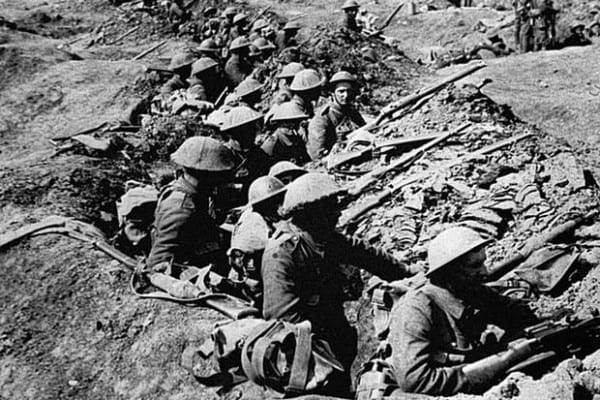
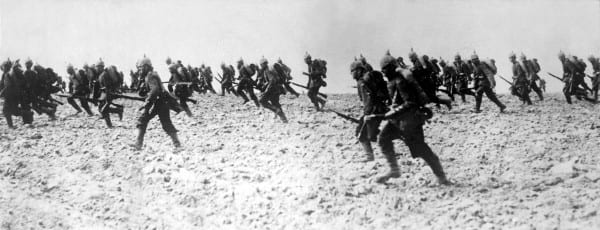

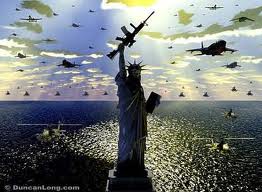
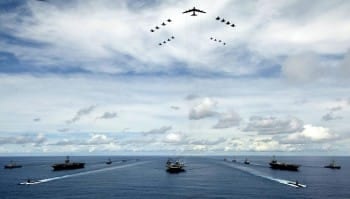






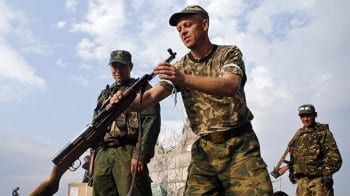
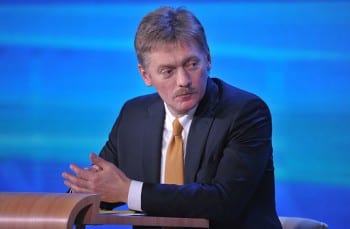
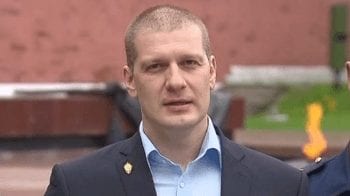
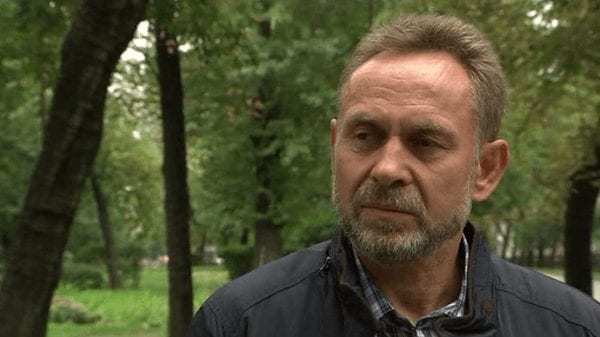
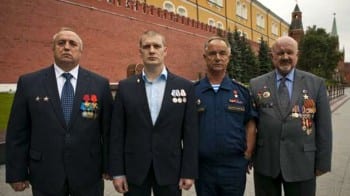
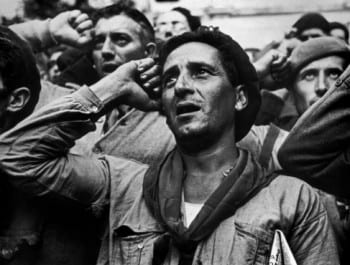 Barcelona, November 1, 1938
Barcelona, November 1, 1938 